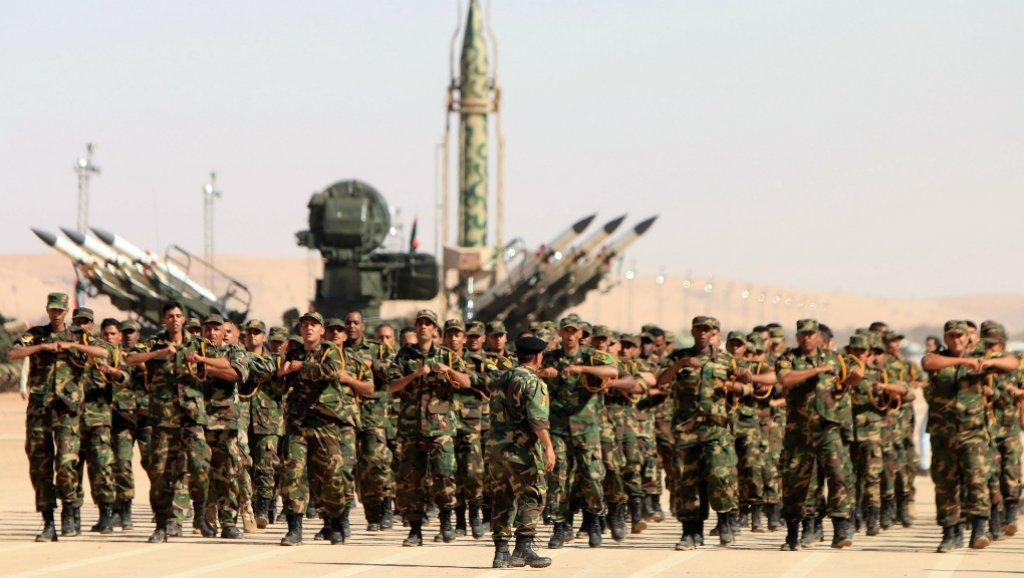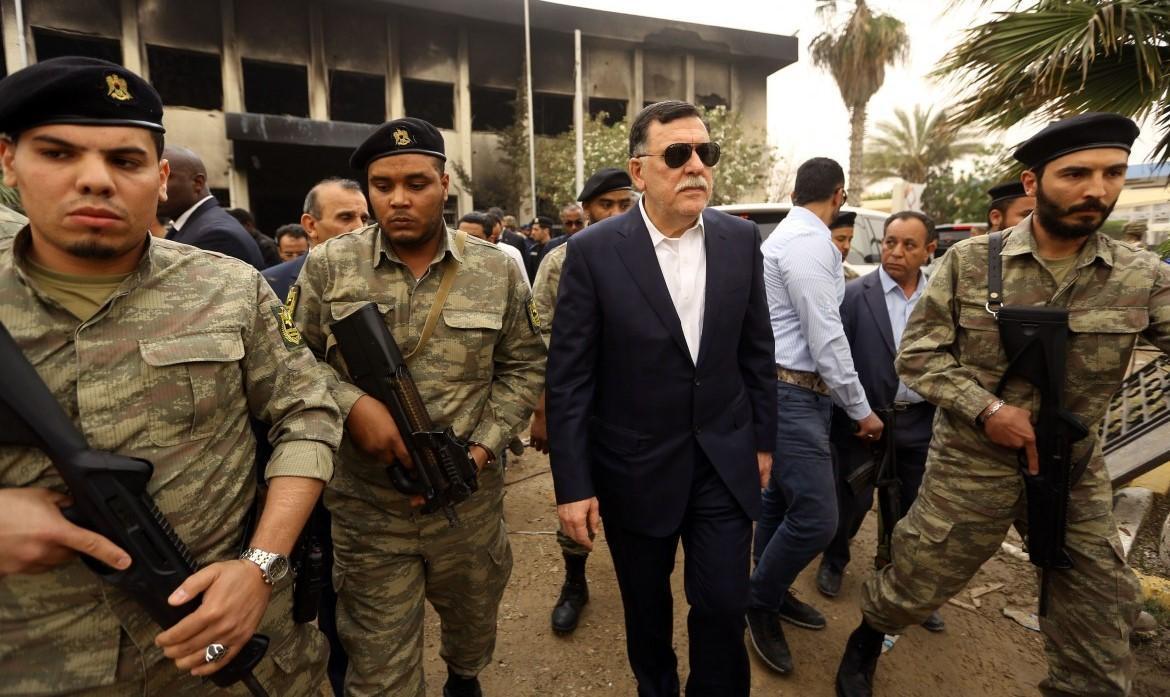Western alliance fissures grow about Libya policy
When Field Marshal Khalifa Hafter began his military offensive in early April to capture Tripoli, Libya’s longtime capital city, the United States and its European allies seemed united about the policy to adopt. They adamantly opposed his move. Haftar’s Libya National Army (LNA) is the military arm of a rival government in Benghazi that opposes the Tripoli-based Government of National Accord (GNA), which the United Nations and most Western countries recognize as the legitimate government of Libya.
The Western powers, especially France, have been working for years to facilitate nation-wide elections that both the GNA and Haftar would accept. French President Emmanuel Macron successfully negotiated a ceasefire agreement between the warring parties in 2017 and a 2018 agreement to hold elections in December 2018. When continuing disagreements prevented the December election, the parties agreed to reschedule it for the spring of 2019. Haftar’s offensive guarantees that the revised target date will not be met either.

Both the United States and its European allies clearly were miffed about Haftar’s decision to seek a military victory rather than a political resolution. Secretary of State Mike Pompeo made it clear that the Trump administration opposed the LNA’s offensive. The European Union demanded that Haftar’s forces cease their advance on Tripoli. With considerable Western input, the G7 and the UN Security Council did the same.
However, there are multiple indications that US policy may be shifting in favor of Haftar. Washington broke with Britain and France regarding a new UN Security Council resolution criticizing Haftar and calling for an immediate ceasefire. Instead, the United States joined Russia in refusing to support the resolution. Then, on 15 April, President Trump called Haftar and clearly had a very cordial conversation. According to the White House’s official readout of the call, issued a few days later, the President “recognized Field Marshal Haftar’s significant role in fighting terrorism and securing Libya’s oil resources, and the two discussed a shared vision for Libya’s transition to a stable, democratic political system.” Although Trump did not endorse the military offensive, such a statement suggested a noticeable change in Washington’s previously hostile view toward Haftar.
And that is how the conversation was interpreted on both sides of the Atlantic. The European governments seemed blindsided by the President’s actions, with EU officials reportedly wanting an immediate reversal. Both domestic and European critics condemned Trump for his apparent policy shift. Representative Adam Schiff (D-California), Chairman of the House Intelligence Committee immediately denounced Trump’s action, “Trump has endorsed Gen. Hafter in Libya, an authoritarian attacking a United Nations backed government.” Even some of President Trump’s usual allies in the Republican Party, such as Senator Lindsey Graham (R-South Carolina), seemed surprised and uneasy about his sudden rapprochement with Haftar.
Trump’s possible change of policy would bring Washington’s relationship with Haftar full circle. In the 1980s and 1990s, Haftar was a CIA asset who resided just a few miles from the Agency’s headquarters in Langley, Virginia. Washington even backed him in an attempted coup against Libyan dictator Muammar Qaddafi in 1988. Apparently, the relationship soured however, because the US notably did not support him following the NATO-assisted revolution that ousted Qaddafi in 2011. Instead, it backed other players who ultimately formed the GNA. It is now possible, though, that the Trump administration has decided to back Washington’s former asset, even though that step might upset some key foreign allies.
But Western divisions regarding Libya policy may be more widespread and complex than just a split between the United States and Europe on the issue. Both Italy and Britain are in the forefront of opposition to Haftar, viewing his actions as disruptive and counterproductive to peace prospects in Libya. Most EU members also adopt that attitude. France, however, now seems to be taking a much more ambivalent, neutral stance toward the feuding Libyan factions, which may make Paris’s position closer to those of Moscow and (possibly) Washington.

The United States also confronts a split among its allies in the Arab world. Egypt has long provided financial and even military assistance to Haftar. Saudi Arabia and the United Arab Emirates also support him politically, although they have been more cautious than Cairo until now with tangible assistance. Qatar, on the other hand, expresses its official backing for the GNA.
Ironically, Trump may have switched sides just at the point when Haftar’s military fortunes have peaked. In early April, it appeared that his forces were on the brink of victory – a development that might have brought Libya’s bloody chaos to an end. However, GNA troops appear to have brought the Tripoli offensive to a halt, and at least in one sector south of the city, caused Haftar’s forces to retreat. The outcome of the latest phase of Libya’s internal struggles remains highly uncertain.
Outside powers, including the United States and its NATO allies, should resist the temptation to meddle. So should the Arab powers. Haftar’s commitment to democratic norms is doubtful, but the domestic factions backing him do seem more secular and less Islamist than some of his opponents, both in the GNA and other, independent militias. The Western countries would prefer to see a negotiated settlement, culminating in free elections to choose a new, united government. But that ideal may not be attainable given the bitter political and ideological divisions in Libya.
Above all, Washington and its European allies should avoid taking initiatives that might, however inadvertently, extend and exacerbate Libya’s suffering. The NATO powers triggered that country’s tragic plight when they intervened in 2011 to help insurgents overthrow Qaddafi. Their expectations of a rapid, orderly transition to a new democratic system were shockingly naïve, and Libyans have paid a high price for that blunder, including thousands dead and millions made refugees. Western governments need to avoid the temptation to meddle further in the troubled country’s internal affairs – on the side of either the GNA or the LNA.
